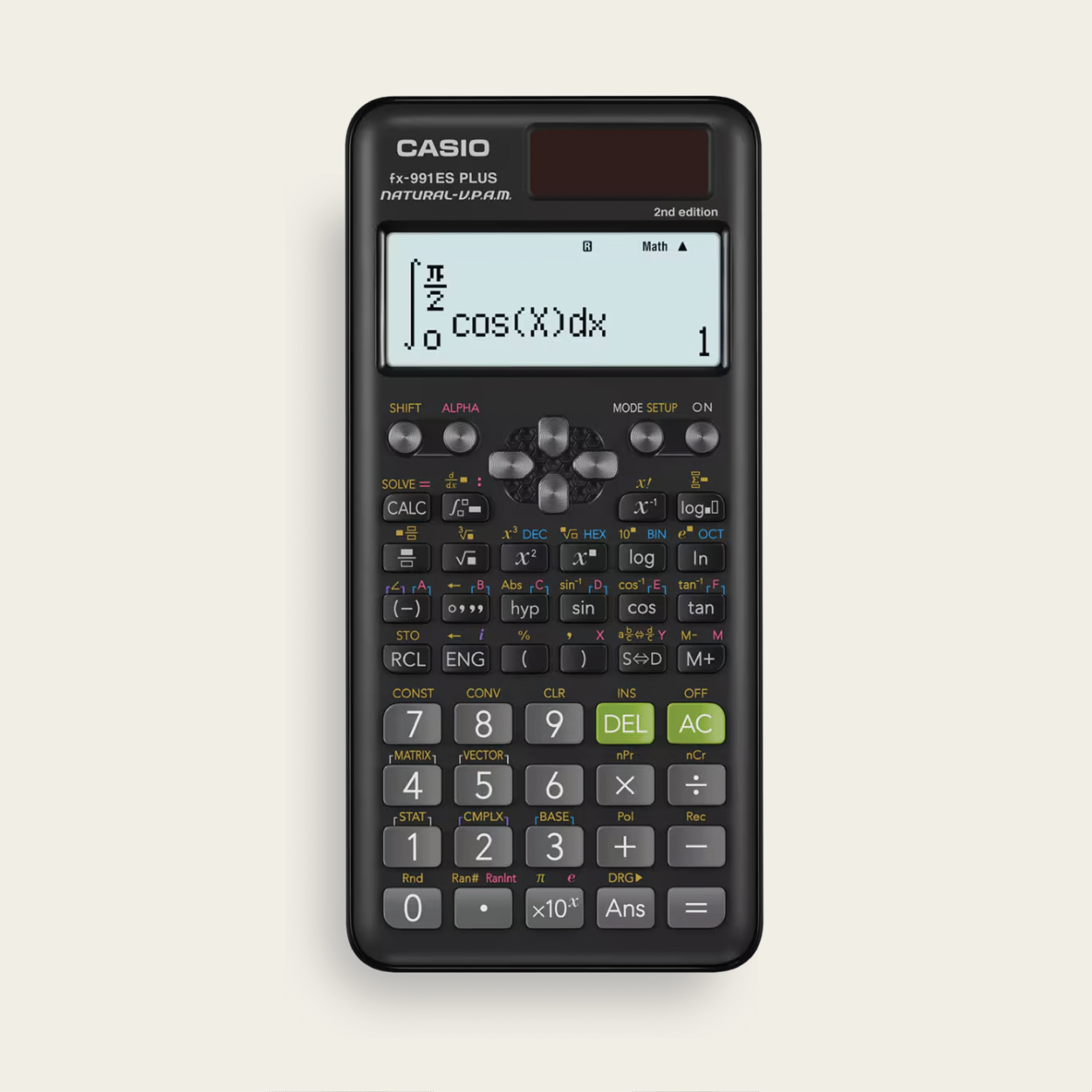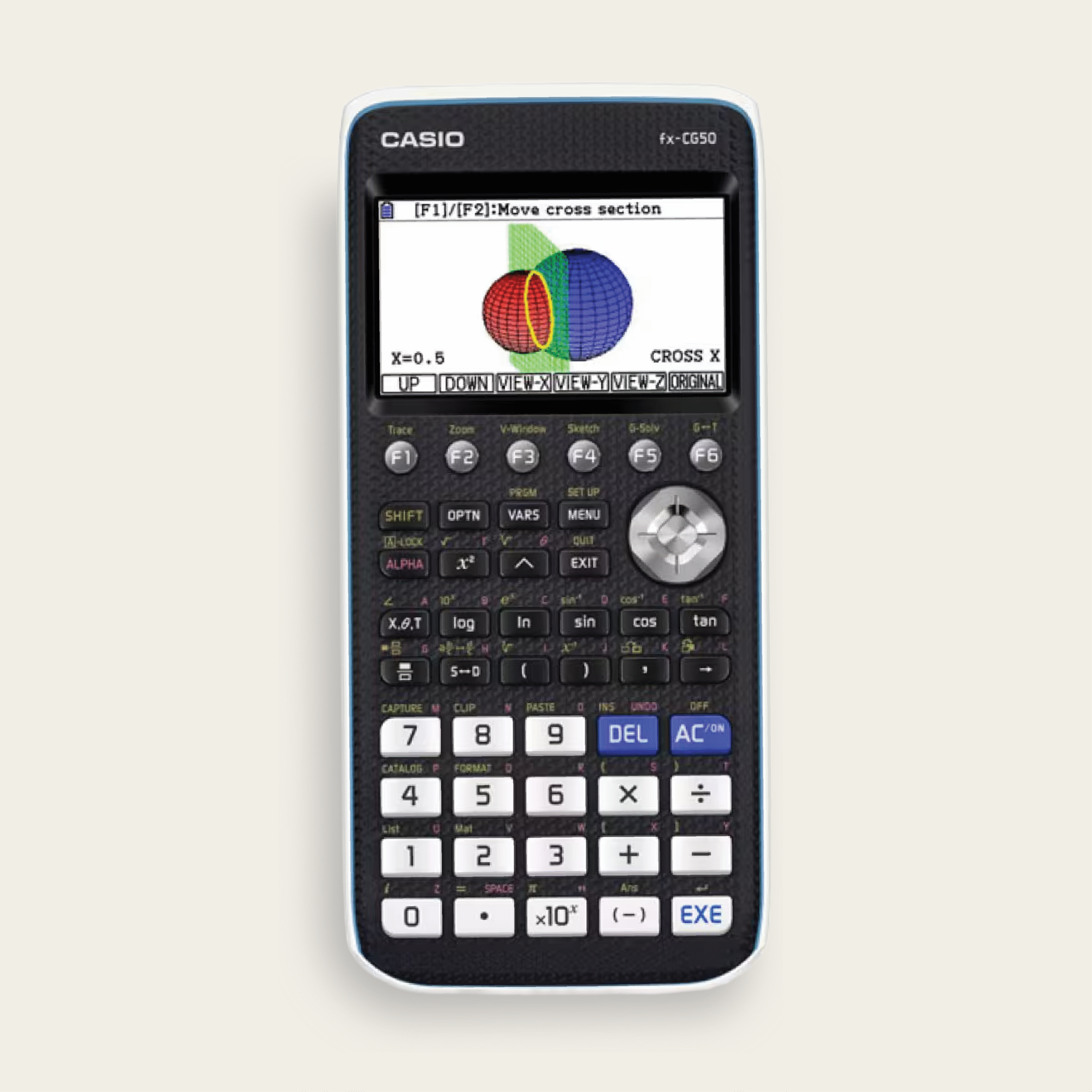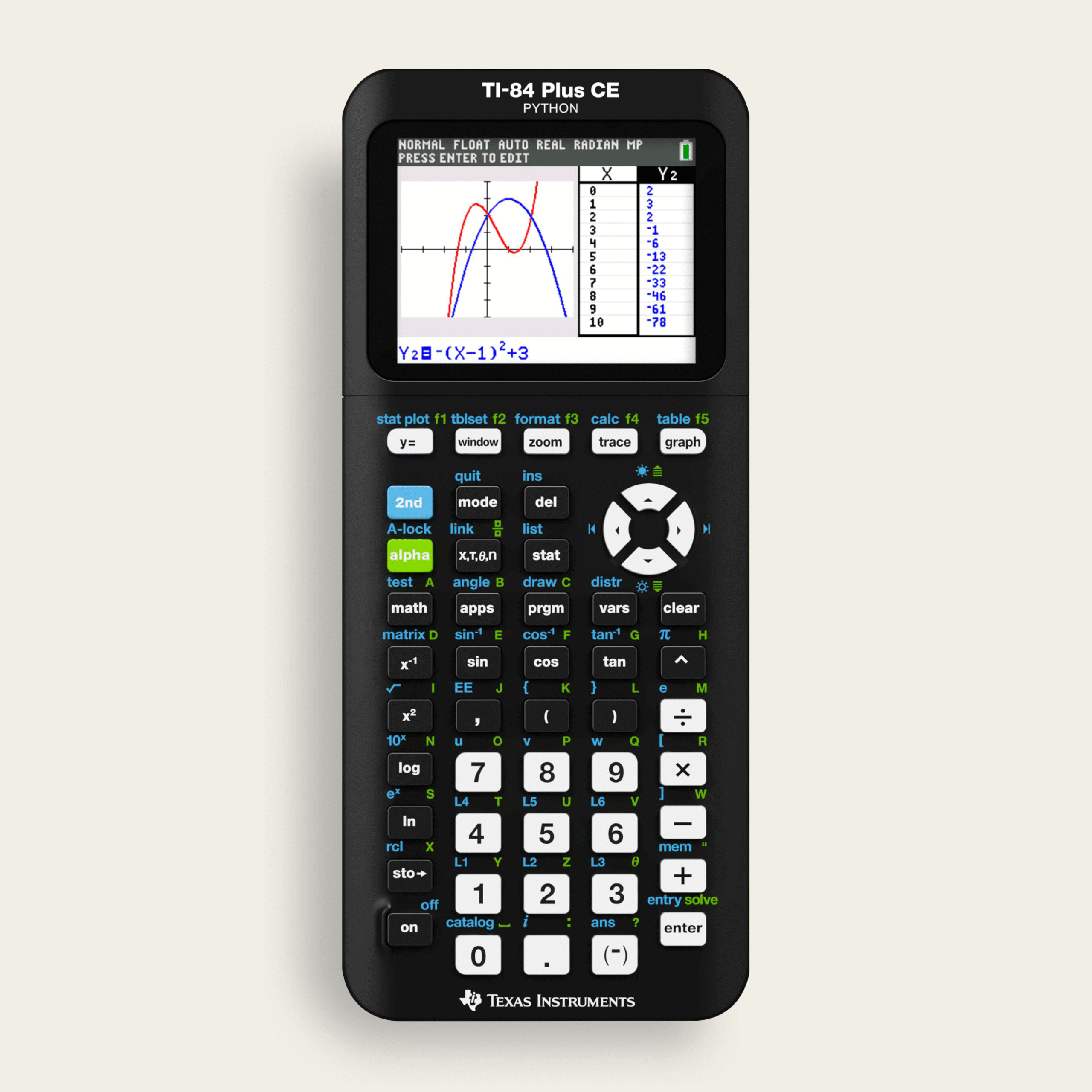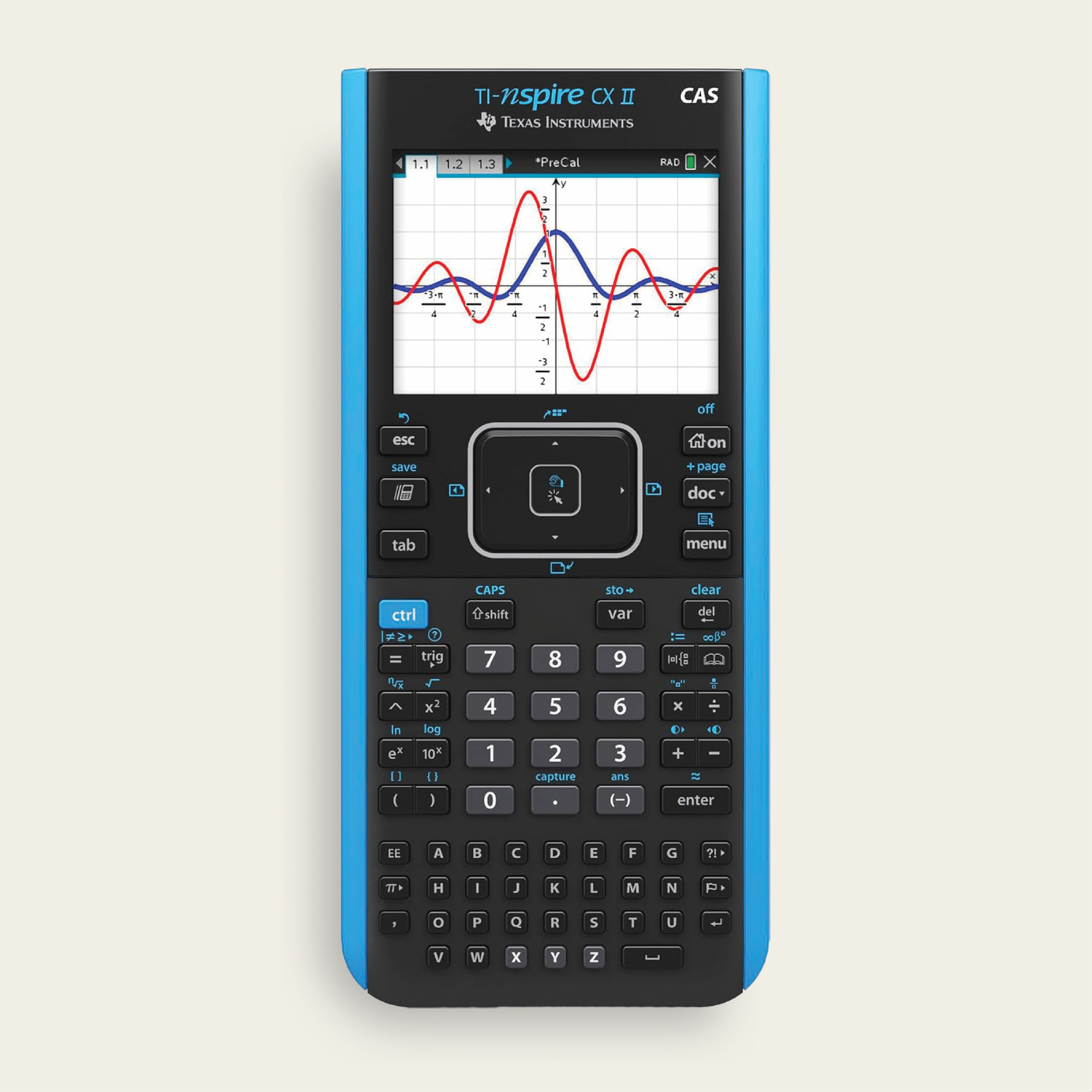A calculator is not just something you use in your exams; depending on various factors, there is a better and worse choice for you.
Schools generally pick a calculator to advise students to use in their lessons and exams. For example, ESF schools prefer the TI-84, GSIS use the Casio fx-cg50, and so on. Teachers are familiar with and teach with these calculators, so it’s best to purchase the one your teacher and school recommend. This is the simplest approach; but for mathematicians who prefer to fully browse all their options, we’ll summarise the most common calculators used in high schools and their differences below for you, from the most affordable to least.
Casio FX-CG991 ES Plus
Out of all the options, this calculator is the most budget-friendly! It’s right for you if you need a simple and affordable scientific calculator for Maths courses that don’t require any graphing- for example, trigonometry and basic calculus. This is also a good starter calculator for students earlier in their high-school careers that want a scientific calculator they can use down the line.
This calculator is generally recommended for Kellett school students studying A-Levels, but is approved for exam boards such as IGCSE, and IB at the time of writing.
Casio FX-CG50
The Casio fx-cg50 is a great graphing calculator; with fast calculation, a color and backlit display, and a user-friendly interface, it’s ideal for students taking advanced maths courses. It’s a cost-effective alternative for the Ti-84. While slightly bulkier than the other calculators here, it uses triple A alkaline batteries, which are portable enough to have spare batteries for exams. It has advanced functions such as 3D graphing and matrices, so for students looking to do some early reading, it suits their purposes.
GSIS recommends the fx-cg50 for its students, and it’s also approved for the SAT, IB, and AP Calculus and Statistics.
TI-84 Plus CE
As a standard graphing calculator, the Ti-84 has a plethora of functions that make it best for students on advanced maths courses, doing mainly algebra, geometry, and calculus. It has graphing functions and a standard color display, and a moderate calculation time.
ESF schools recommend the Ti-84 all around for their students taking the IB diploma, but it’s also approved for the SAT, ACT, and AP exams at the time of writing.
TI-nSpire CX II
As the most expensive calculator on the list, it’s the best option for students in advanced calculus, linear algebra, or courses that require programming. It supports Python, and is suitable for students looking to use their calculators into University, but it does require more practice to fully grasp than the Casio fx-cg50. It has a color display and standard graphing functions.
CDNIS students are recommended to buy this calculator, but it’s also approved for exam boards such as the IB and the SAT at the time of writing.
Exam Tips
It’s important to be very familiar with the calculator you bring into your exam. You should ideally be using the same calculators from the beginning of your curriculum all the way to exams, including and especially during practice exams, to make sure you take full advantage of all the functions available. There are shortcuts on each calculator that help with the more tedious calculations, such as the Euler Method, and you should know how to navigate and use them prior to exams. Statistics functions are often more hidden away, so practice is key to save precious time.
Make sure you know exactly how to switch your calculator to Exam Mode before you sit your exams; the IB requires students to do so, and you can find how to do so in the user manual or via Google.
Bring extra batteries if possible, or make sure to charge your calculator before every exam. The worst thing that can happen is if your calculator runs out mid-exam and there isn’t any available for you to borrow.
Generally, the best thing to do is to follow the advice of your individual teachers for your maths courses, since they’re familiar with the functions and use them to teach you.
Explore the Studia E-Shop at https://studiaacademy.com/product-category/calculator/ for your new exam buddy!









